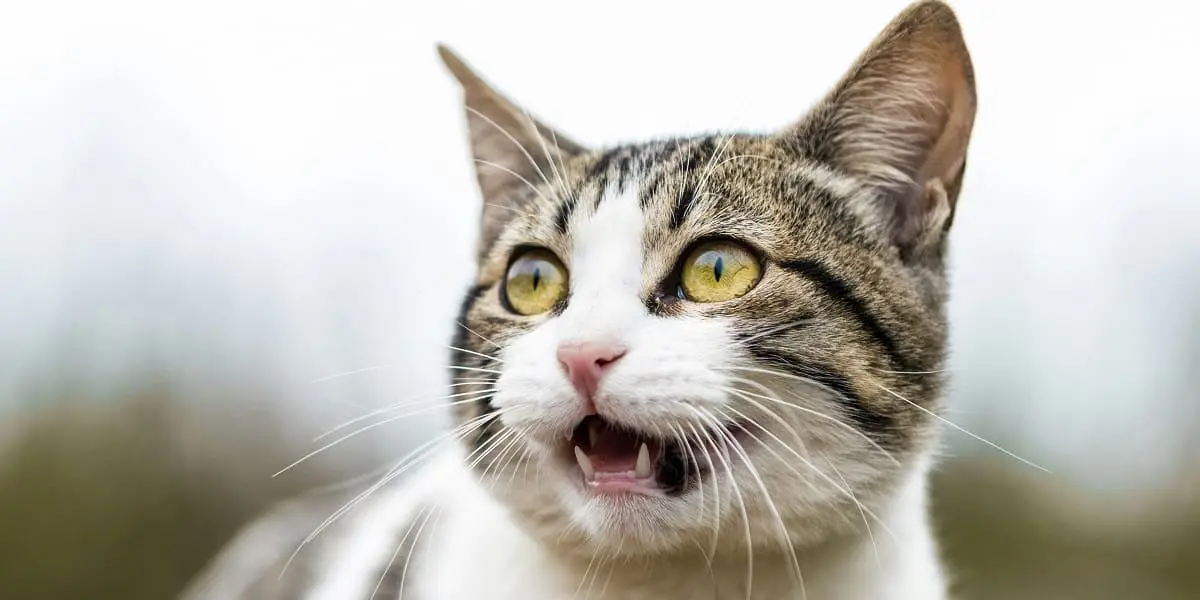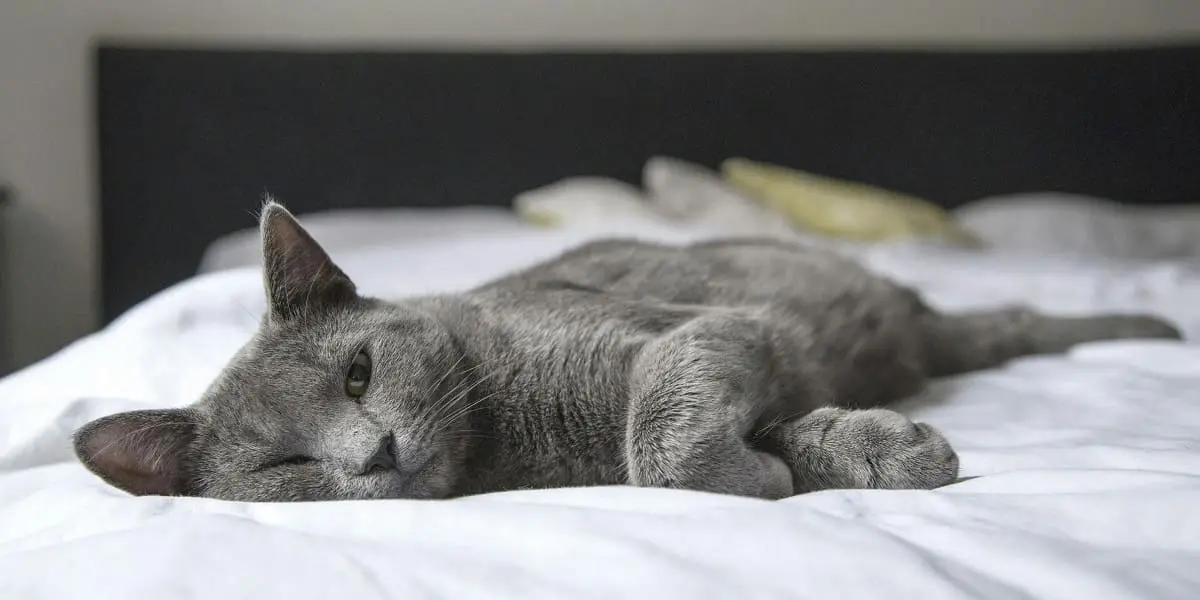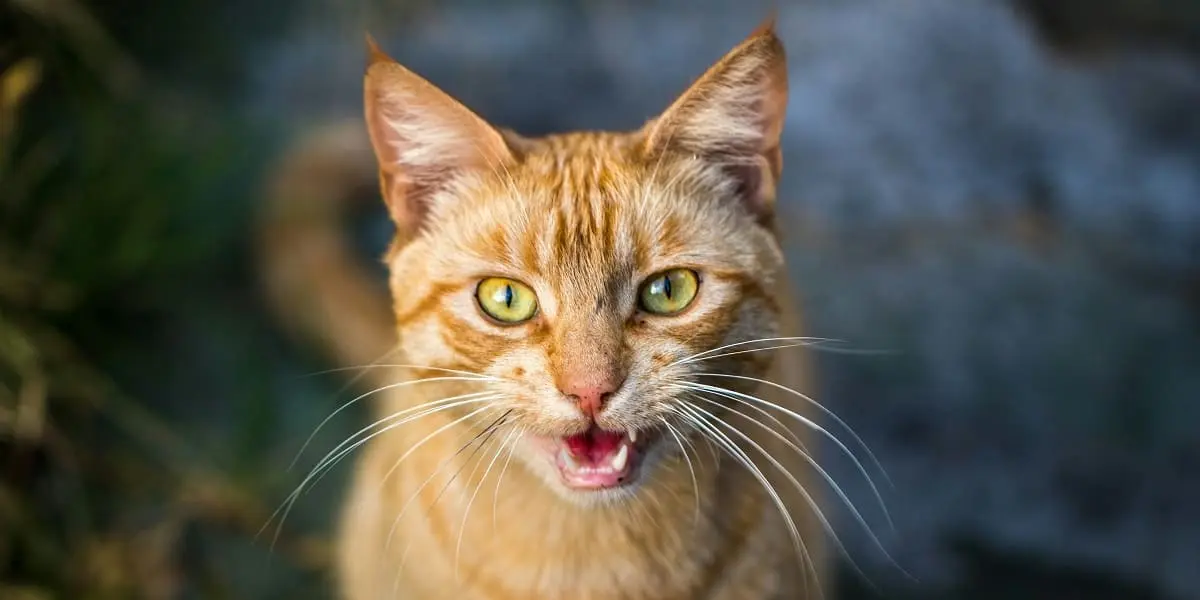Content
Cats have developed a unique way of communicating, not only with humans but also with other cats, using a wide range of sounds, including the meow.
A cat’s meows can express a multitude of emotions, needs or requests. But what to do when your cat starts meowing incessantly, day and night, seemingly for no reason? How can you decipher this incessant communication and calm him down?
In this article, we’ll look at the reasons why your cat may meow incessantly, the various tips for calming a cat in this state, and the times when it’s necessary to worry about this repeated meowing. We’ll also give you tips on how to better understand your cat’s language and strengthen your bond with him.
Understanding why your cat meows constantly
To manage a cat that never stops meowing, it’s essential to understand the motivations behind this behavior. Meowing is the cat’s way of communicating its needs, desires, emotional states or problems.
1. Expressing needs or desires
Hunger is often the main cause of repetitive meowing. If your cat meows insistently, it may be asking for food. Make sure his bowl is always full and that it meets his nutritional needs.
He may also be meowing for water, a clean litter tray, a cuddle or a treat. Try to satisfy his requests without systematically rewarding him, to avoid reinforcing this behavior.
2. Underlying health problems
Constant meowing can also be a sign of a health problem. Your cat may be alerting you to an illness, injury, pain or age-related problem.
If your cat’s meowing seems abnormal, persistent or accompanied by other symptoms, it’s advisable to consult a veterinarian for proper diagnosis and treatment.
3. Stress, anxiety or boredom
Excessive meowing can also be caused by stress. Moving house, adoption, separation or the arrival of a new pet can stress a cat.
Anxiety or boredom, due to a lack of stimulation or attention, can also be the cause.
So it’s important to reassure your cat, provide it with a safe, stimulating environment and spend time with it.
4. Territory marking and sex hormones
Unspayed cats may meow frequently during mating season, expressing desire or frustration. The tone of the meowing may vary according to sex.
This behavior may also be motivated by the presence of a rival or potential partner.
Neutering your cat is the most effective solution to this problem, with additional benefits for its health and well-being.

Tips for calming a cat that meows constantly
To regain serenity in the face of a cat that won’t stop meowing, it’s essential to understand the causes. Here are some effective tips for calming your cat down.
1. Create an environment conducive to well-being
A cat that feels comfortable in its environment is less likely to meow excessively.
Make sure your cat has a comfortable, safe space that meets its needs. This means peaceful resting places, hiding places, scratching posts and easy access to food and water.
Reduce sources of stress, such as loud noises or sudden changes, and leave your cat free to interact.
2. Satisfy his basic needs
Incessant meowing may indicate an unmet desire or need. Keep food, fresh water and a clean litter tray available at all times.
For neutered cats, opt for a diet that avoids excess weight. If your cat seeks attention, respond without encouraging incessant meowing by being too systematic.
Make sure your cat is properly identified and protected against parasites if it wishes to go outside.
3. Stimulate the environment and play
A bored cat is more likely to meow out of frustration or anxiety.
Stimulate his hunting and playing instincts by offering him a variety of interactive toys.
Participate in daily play sessions lasting at least 15 minutes to keep him entertained and strengthen your bond.
4. Consult a vet to identify any health problems
If your cat meows constantly, it may be a sign of a health problem that’s trying to get your attention. The causes can be diverse: illness, injury, pain or age-related behavioral problems.
In the event of unusual, persistent meowing or meowing accompanied by other symptoms, a veterinary consultation becomes imperative for a precise diagnosis and appropriate treatment to soothe your companion.
5. Education and positive conditioning
A cat that meows excessively may have learned to associate this behavior with benefits, such as receiving food, attention or being allowed outside.
Positive conditioning is a particularly effective way to remedy this. It involves rewarding desired behaviors while ignoring those you wish to discourage.
For example, if a cat meows to eat, wait for it to calm down before feeding it. If a cat meows to open the door, don’t give in until it stops. If a cat asks to play with its meows, resist until it calms down, then offer it a toy.

When should you worry about repeated meowing?
Have you tried various methods to calm your cat’s incessant meowing, but to no avail? Are you wondering whether this is a normal phenomenon or whether it masks a more serious problem?
If your pet’s meowing seems unusual, persistent or accompanied by other symptoms, a visit to the vet is in order.
The following signs should alert you:
- Meowing that is louder, higher-pitched or more intense than usual;
- Sudden changes in behavior, such as aggressiveness, apathy or lethargy;
- Physical changes, such as weight loss, hair loss, vomiting or diarrhea;
- Difficulty urinating, defecating or breathing;
- Signs of pain, such as excessive licking, biting or scratching.
It’s essential to observe your cat carefully and note the frequency, duration, intensity and context of its meows to determine whether they are normal or abnormal.
This will enable you to identify whether the meows correspond to specific needs, such as hunger, thirst, stress or reproduction, or whether they reflect a deeper malaise.
You should also be alert to the persistence of the symptoms. Occasional or seasonal meowing is usually nothing to worry about.
On the other hand, if the meowing is constant, chronic or atypical, a veterinary consultation is recommended. Your cat could be suffering from a health problem requiring appropriate treatment.
Ignoring your cat’s incessant meowing can jeopardize its health and well-being. By ignoring these signals, you risk aggravating his condition and causing serious complications.
Ignoring these calls can lead to the following:
- An exacerbation of the health problem, with serious or even fatal consequences;
- A deterioration in quality of life, which can lead to suffering, frustration or depression;
- A deterioration in the relationship with your cat, which may result in mistrust, fear or hostility.
It’s important to remember that meowing is your cat’s natural way of indicating his needs, desires, feelings or concerns.
Ensuring your cat’s well-being means creating a healthy environment, satisfying its basic needs, enriching its living environment and playing with it. It also means calling in a professional when in doubt, and applying positive conditioning techniques to adapt your cat’s behavior.
If you put these recommendations into practice, you should notice a reduction in your cat’s excessive meowing.
- Discover also
- How to attract a cat to your cat tree?
